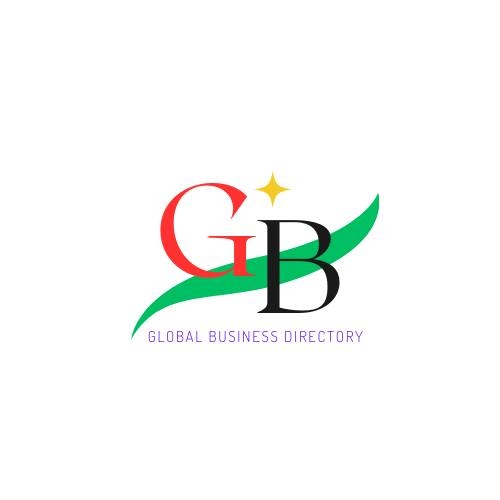Understanding the Legal Importance of Document Translations in International Business
jerryfraumaux . Follow
2 months ago
It goes without saying that international business relies on smooth, precise communication across borders. A significant part of that communication occurs through legal documents, including contracts, agreements, and patents. When companies from different countries collaborate, each operating under its own legal system and language, the stakes for accuracy in documentation skyrocket. A mistranslation can lead to costly disputes, regulatory failures, or even lost business opportunities. This is where a sworn translator becomes indispensable.
Why Accuracy in Legal Translations Matters
Legal language is a beast of its own—dense, complex, and sometimes painfully specific. However, the need for precision in legal documents isn’t just bureaucratic nitpicking; it’s essential to ensure that contracts, agreements, and obligations are enforceable across borders. The very nature of legal text means that a mistranslation of even a single word or phrase could alter the legal standing of a contract.
Consider a contract governing a cross-border merger between two multinational corporations. If the contract is poorly translated, one side might be held accountable for clauses it never agreed to. Or worse, a faulty translation could void the contract altogether. International legal disputes of this kind can drag on for years, making an accurate translation an insurance policy against these headaches.
This leads us to the sworn translator—a certified professional who guarantees that legal documents are translated with precision and are legally valid in both jurisdictions.
What a Sworn Translator Do
A sworn translator is not just any bilingual professional; they are officially recognized by a legal authority, typically a court or government body, as having the competence to translate legal documents in a manner that is both accurate and faithful to the original text. The certification they provide ensures that the translated document is legally binding, which is particularly crucial in international business dealings.
Sworn translators bring several layers of assurance to a translated document:
Legal Expertise: They are familiar with the legal systems of both the source and target languages, ensuring that terms are not just linguistically correct but also contextually appropriate.
Certified Accuracy: Their translations come with a stamp of certification, which confirms that the document is a true and faithful translation. In many countries, this certification is required for the document to be admissible in court.
Confidentiality: Legal documents often contain sensitive information, and sworn translators are bound by a code of ethics to maintain confidentiality.
These professionals are a critical asset when translating high-stakes documents like contracts, patents, court rulings, or any other legal text where accuracy is non-negotiable.
Documents That Require Sworn Translation

Certain documents are legally required to be translated by a sworn translator, particularly in international dealings. Here’s a closer look at the types of documents most commonly needing certified translation:
Contracts and Agreements: Whether it’s a merger, supply agreement, or employment contract, the legal obligations set forth in these documents must be enforceable in all relevant jurisdictions. A sworn translator ensures that every clause is perfectly rendered in the target language, avoiding ambiguity.
Patents and Intellectual Property Documents:
Protecting intellectual property on a global scale requires airtight documentation. Patent filings are often a battleground for multinational corporations, and inaccurate translations could result in the loss of legal rights in key markets. Sworn translators ensure that technical and legal nuances are preserved when patent documents are submitted internationally.
Court Documents:
If a business faces legal proceedings in a foreign country, court orders, pleadings, and judgments often need to be translated. Here, the precision of a sworn translator becomes crucial to ensure that justice is served fairly, without confusion or misinterpretation.
Certificates and Notarial Acts:
Many international business transactions involve certified documents such as incorporation certificates, licenses, or notarial deeds. These documents must often be sworn-translated to satisfy regulatory requirements across different countries.
Regulatory Compliance Documents:
Global companies are subject to various compliance laws in each market they enter. These laws often require official, certified translations of regulatory filings, product approvals, and more. Any misstep in these translations could lead to penalties or delays in entering a market.
Global Reach, Local Laws
While the sworn translator’s role is to ensure legal accuracy, the need for their services is largely driven by local regulations. Different countries have varying requirements for what constitutes a valid legal document. For instance, in many EU countries, contracts and other important legal documents must be translated by a sworn translator before they can be submitted to a court or other regulatory body.
In contrast, other countries may not require sworn translation but will still recognize it as a way of ensuring legal accuracy and trustworthiness in international dealings. In either case, companies that overlook the need for certified translations risk facing unnecessary legal complications.
Reducing Risk in International Business
The importance of sworn translators in the global business ecosystem cannot be overstated. At a time when companies are expanding rapidly across borders, the risks of mistranslation loom large. An inaccurate or uncertified translation could result in anything from regulatory penalties to failed business deals. Worse still, it could cost a company its reputation.
Investing in certified legal translation, particularly through a sworn translator, is not just about compliance—it’s a form of risk management. Companies that prioritize the accurate and legal translation of their documents are more likely to avoid legal pitfalls and smooth their operations on the global stage.
Recommended topics
Recommended from Guest Post

Global Business Directory
25 Active business directory & listing sites in Cayman Islands
May 16, 2024
Global Business Directory
25 Active business directory & listing sites in Saudi Arabia
April 27, 2024
Global Business Directory
20 Active business directory & listing sites in puerto rico
October 19, 2024
Motion Hospitality
Hospitality Management in Dubai and KSA with Motion Hospitality: Excellence in a Thriving Industry
November 23, 2024
Global Business Directory
20 Active business directory & listing sites in New Zealand
December 8, 2024Nugroho Tyas

